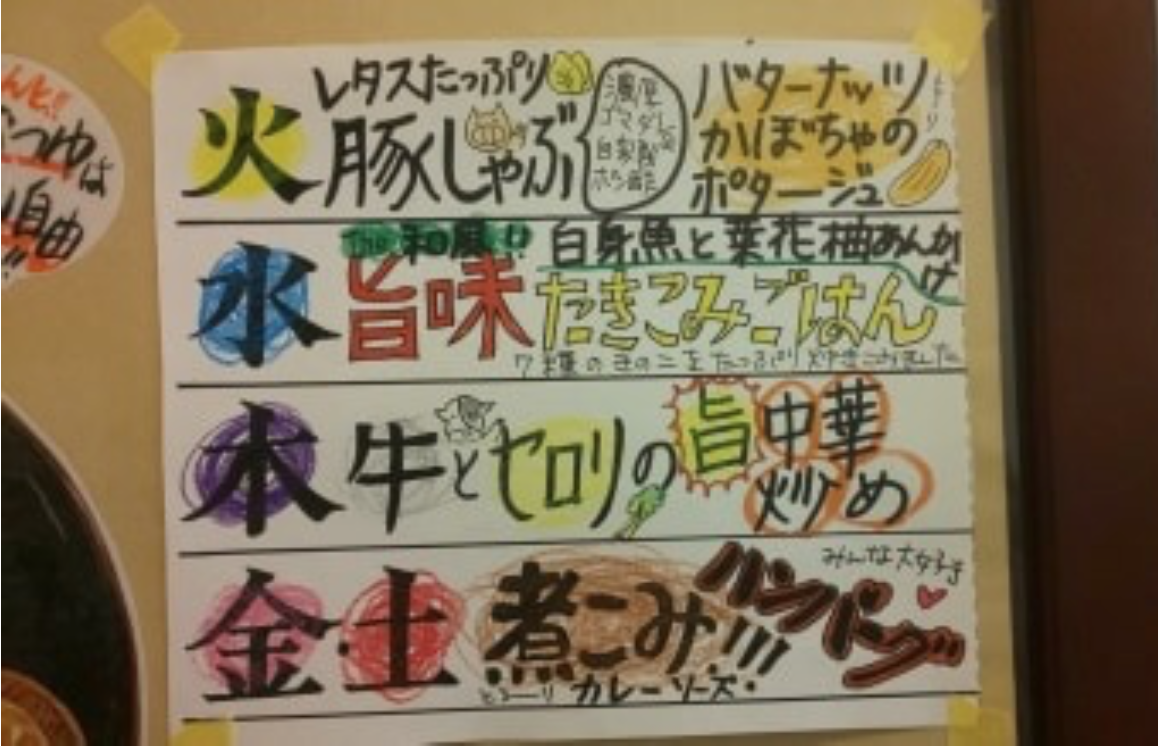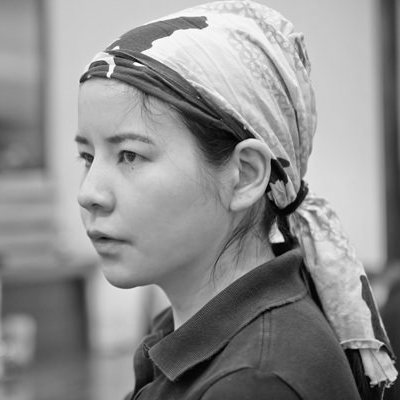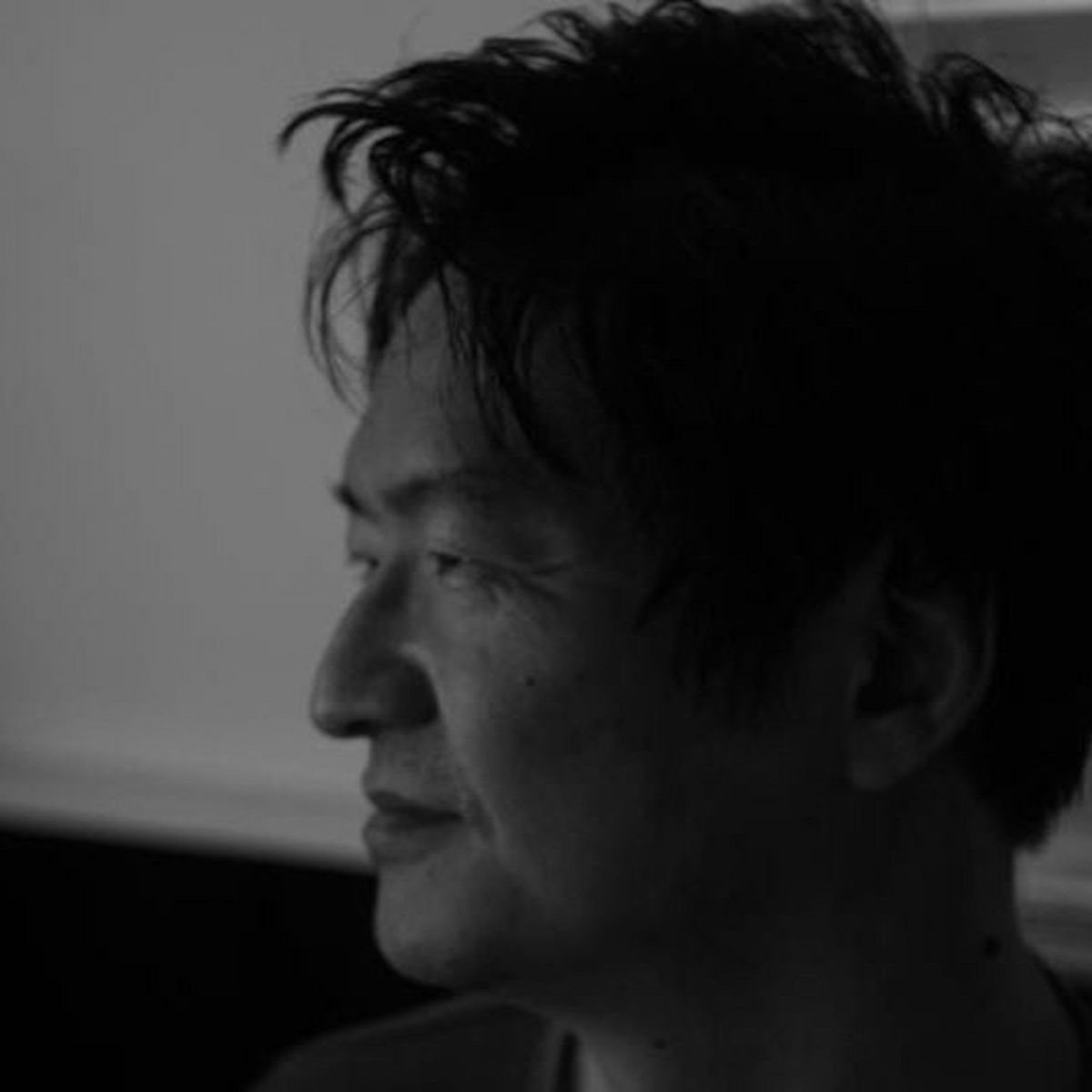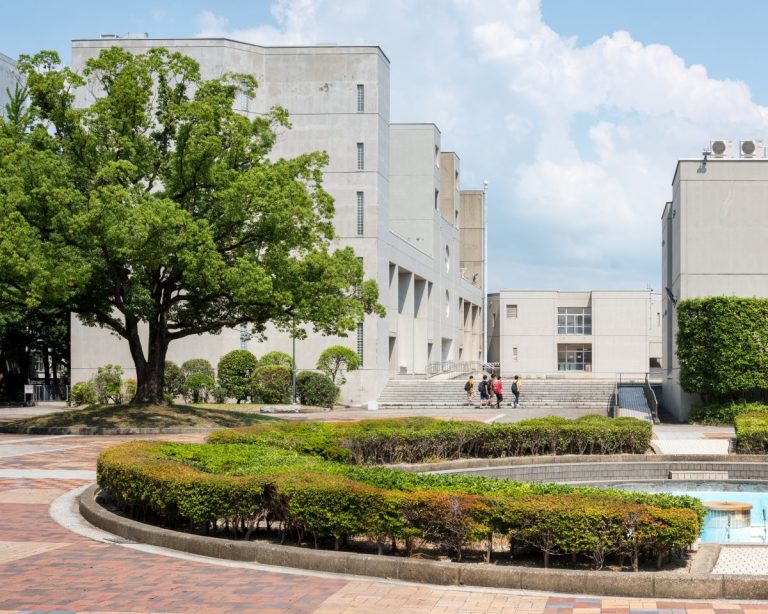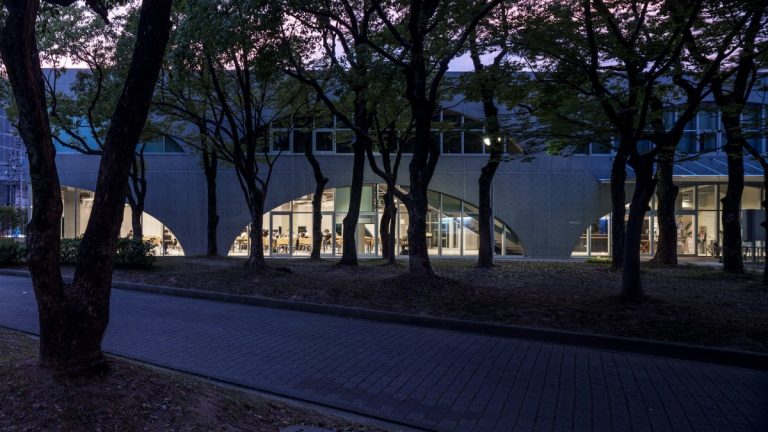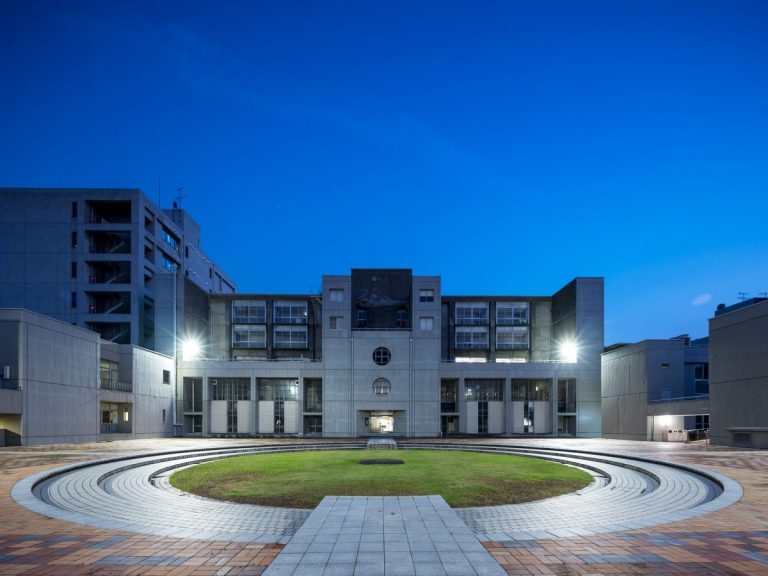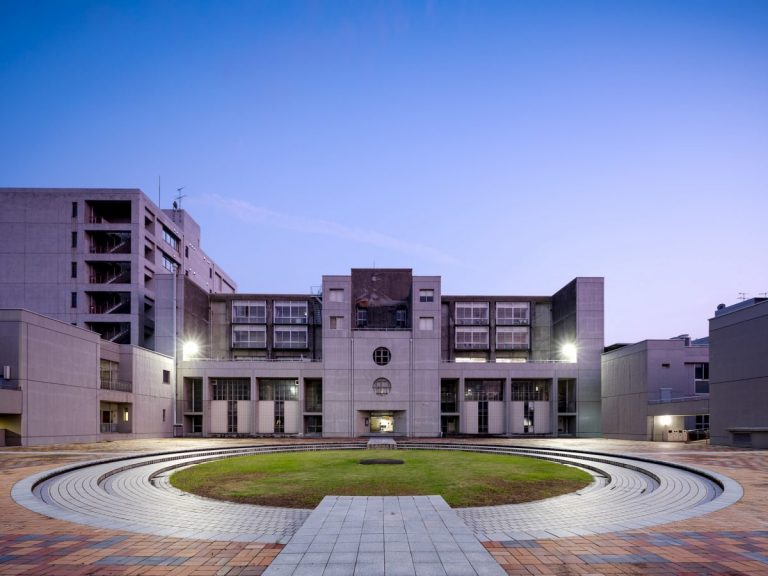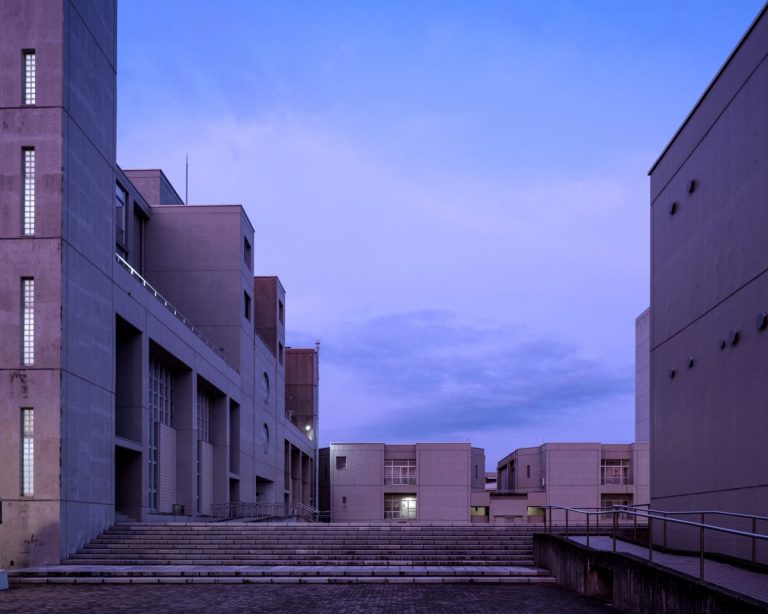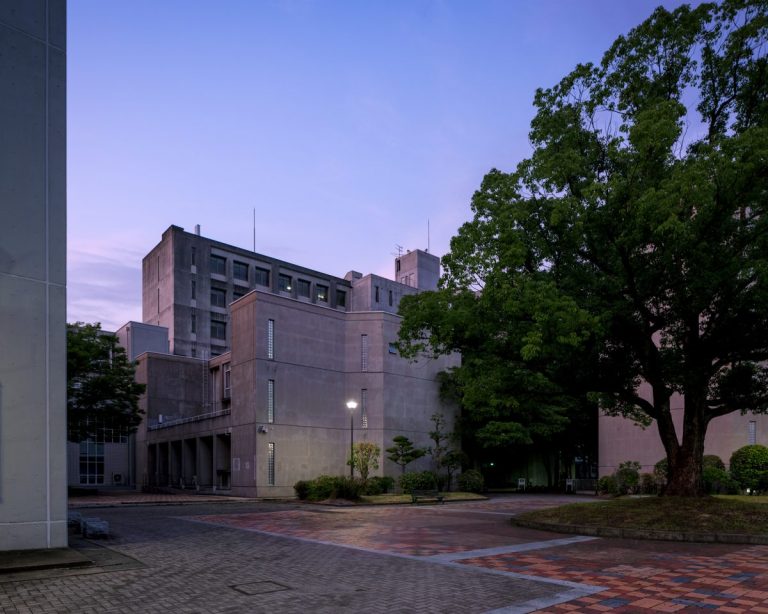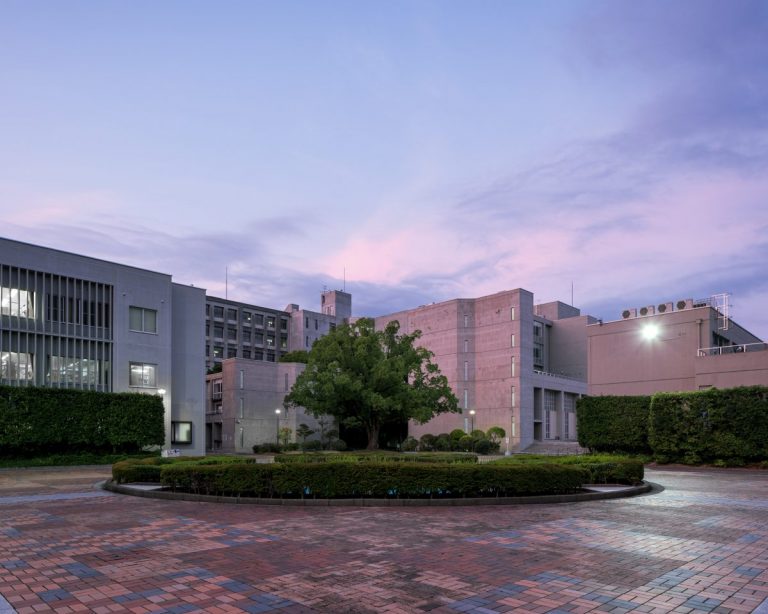The 20th Study of Design Fundamentals Seminar: Designs of Sustainable "Goodwill"
Kyushu University Faculty of Design explores the fundamental methodology of design for integrating a wide range of designs. For the 20th online seminar, titled “Designs of Sustainable ‘Goodwill'”, Sekai Kobayashi, CEO MIRAI SHOKUDO, gave a talk about the way in which MIRAI SHOKUDO takes care of many challenges daily as a place that strives to serve meals everyday. Toru Koga, professor of Faculty of Design, summarizes the main arguments of the talk session regarding how can design change vulnerable relations to that of strength.
Anyone who works for 50 minutes as s helper can get a free meal ticket. People who receive a ticket can use it to enjoy a meal or attach that free ticket to the wall. With the ticket on the wall, anyone visiting can have a meal right away. There are two systems: One is makanai, which involves serving as a helper, satisfying one’s desire to do something to help someone, and the other is tadameshi, providing warm meals for people who cannot pay. Mirai Shokudo is efficiently operating such systems while offering a daily lunch special priced at 900 yen.
An open system where anyone can freely use the limited resources created by goodwill is likely to be destroyed by egoistic and heartless users. Also known as the “tragedy of the commons”, this model is susceptible to collapse and has an appeal to evil rather than to good, even promoting moral devastation. Nevertheless, Mirai Shokudo has continued to maintain this system without going into the red. What is the secret of its success? We discussed this with Ms. Sekai Kobayashi, the owner of the restaurant.
First of all, this system is designed to encourage you, if you use a free meal ticket, to always be conscious of your relationship with the one who offered it. Each ticket contains a message from the makanai helper who earned it and provided it. Also, the user is obligated to write on the ticket the date on which they read and used it. At that time, you will be moved to ask yourself whether you are qualified to respond to the makanai helper’s goodwill. When you do so, the concreteness of the relationship will undermine your sense of ownership. But this could make the user feel some pressure, and it’s not a major factor anyway.
The true secret lies somewhere else. That is, the goodwill of Mirai Shokudo is an extremely small factor. People are willing to make sacrifices for a good purpose. And they are inclined to believe that doing so makes the goodwill more valuable. When their time, money and even their lives are offered as sacrifices for the benefit of humanity, society, students, children, homeless people, or for people with disabilities, such deeds will be viewed as more valuable and significant and something better. However, the goodwill that has been formulated in this way sometimes begin to give off an oppressive odor.
A sacrifice out of goodwill asks for a reward out of goodwill. When such reward is not given, the givers may start to think: “Why should I allow such a person to enjoy the result of my hard work?” They may also think: “I want this ticket to be used by someone who is really in trouble” and “I want that person to work and give something in return to this place someday.” This is how goodwill, spontaneity and giving transform into evil, compulsion and exchange.
For goodwill to remain pure, it is necessary to come up with an idea that allows the sacrifice needed to pay for such goodwill to be reduced to the minimum degree possible. Providing makanai service doesn’t necessarily mean self-sacrifice to rescue the needy. Service can be performed out of various motives, such as wanting to acquire skills for the restaurant business, simply wanting to feel fulfilled by engaging in physical activities for a period of time as if exercising at a training gym, or just wanting to work with Ms. Kobayashi, whom they have heard a lot about. If that is the case, the participants don’t need to focus their attention on the question of whether the ticket they earned by their labor will actually be used for someone who is truly in trouble.
Actually, Ms. Kobayashi could basically run Mirai Shokudo for herself without makanai helpers. Therefore, while having makanai helpers work hard for a period of time, she does not place excessive demands or expectations on them. They can freely come and go as they please. That is why it is possible for her to arrange work assignments according to the capacity of each individual in such a way that allows anyone to enjoy working while feeling a sense of fulfillment. Mirai Shokudo basically provides one type of meal, a menu of the day. So, with surplus ingredients at the market purchased at lower prices, she can make up a menu of the day depending on the ingredients available. That also enables her to arrange small additional dishes with extra time and effort, responding to the customers’ current situation.
Ms. Kobayashi, who was an engineer, has built a system that can reduce the entry cost at all points of contact, minimize the sacrifice for goodwill, and even render people’s goodwill invisible. At the same time, goodwill transforms itself from a heavy solid object aiming to gain approval and reward into a gas that flows and refreshes the atmosphere of the place. It is such a magnanimous spirit that creates the “place” in which the people involved restore their individual personalities.
I was struck by one of Ms. Kobayashi’s comments. She said that the restaurant business will work if you can split a cookie in two and give the larger piece to your customer. With her comment sounding a bit self-sacrificial, I felt at odds with her thought for a moment, but I suppose the surplus released toward someone unknown will become gas and drift about in the restaurant for a while, before quietly vanishing.
Makanai enables you to obtain a meal ticket and is fun in itself, so it’s always popular. Perhaps part of the service may help someone someday. Since such refreshing resources are being supplied one after another, it is not important what kind of people will come, how much tadameshi there is or how big a free meal they will eat, and out of what motives they will do so. Needless to say, tickets are issued in exchange for the makanai service people have offered, so no matter how many tickets are used, there is no impact on the restaurant’s finances.
But sometimes, both makanai helpers and Ms. Kobayashi feel discouraged with the behavior of visitors. After all, even a carefully thought-out system sometimes calls for the mental training of people working there.
Member
-
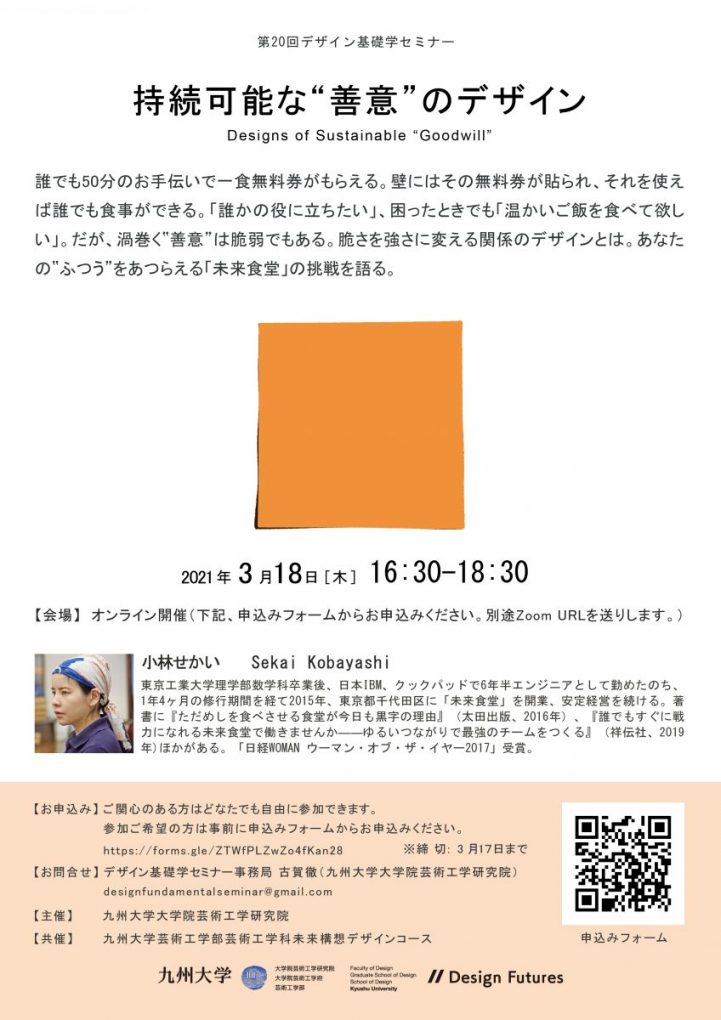 the 20th seminar poster
閉じる
the 20th seminar poster
閉じる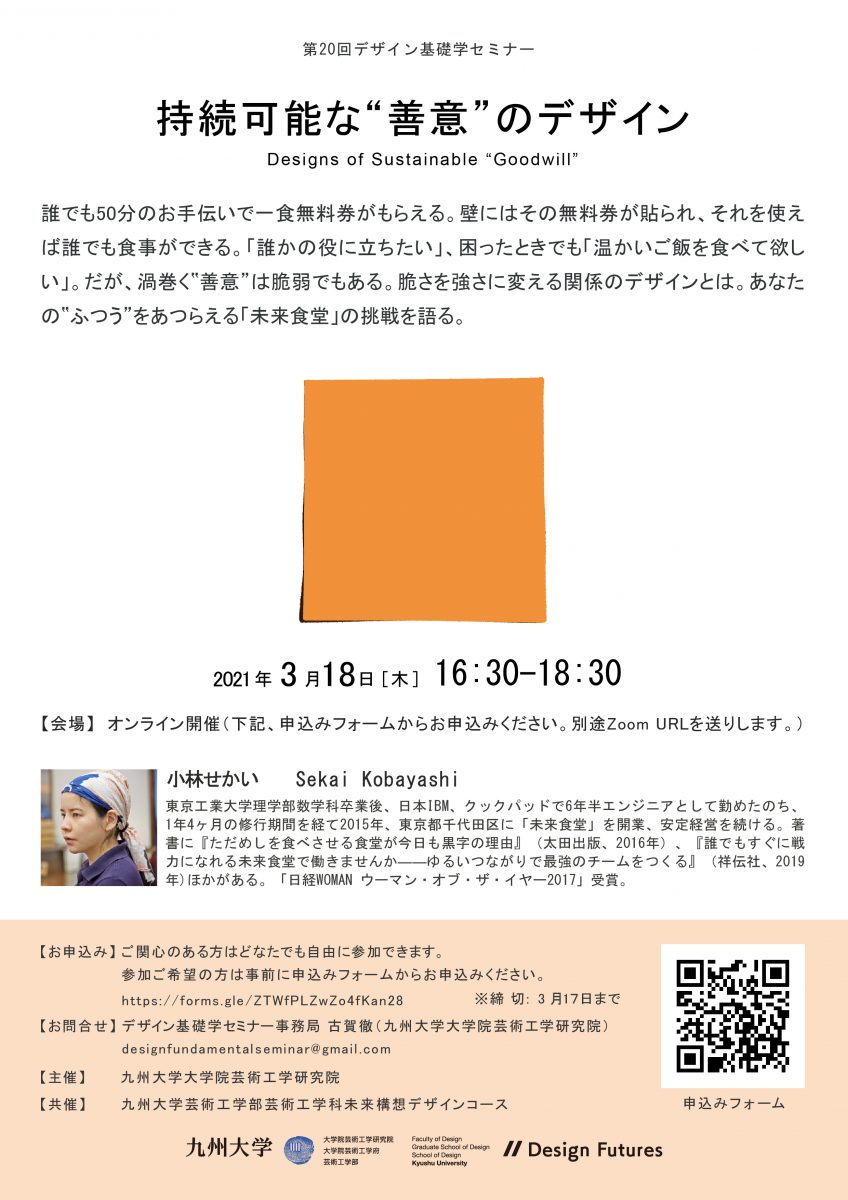
the 20th seminar poster
![九州大学イノベーションデザインネクスト[KID NEXT]](https://www.kidnext.design.kyushu-u.ac.jp/wp-content/themes/kidnext/img/logo_header.png)
